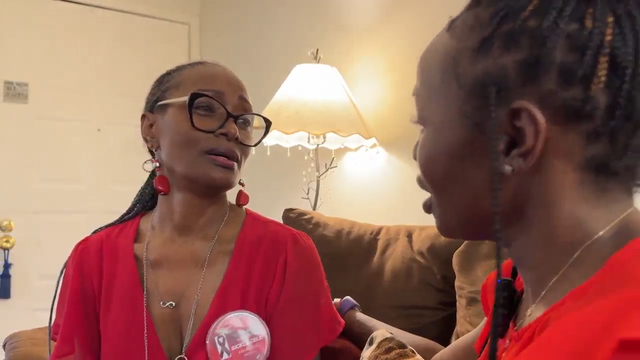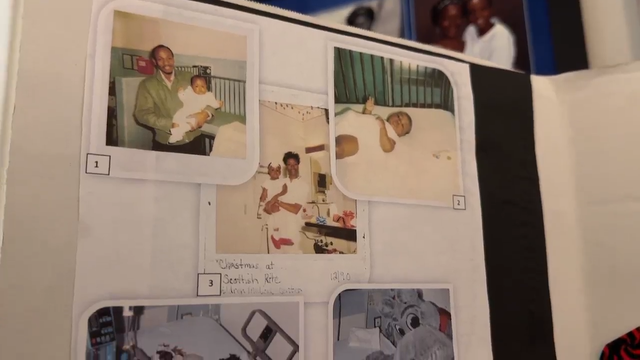Sickle Cell Awareness Month: Georgia family living with the disease advocates for more testing
September is Sickle Cell Awareness Month, a time to raise awareness about the genetic blood disorder that remains under-treated.
According to data from the Centers for Disease Control and Prevention, about 100,000 people in the United States live with sickle cell disease. Georgia has one of the highest rates of the disease, with more than 16,000 cases.
For one Georgia family with three generations of women living with the disease's complications, September is a time to advocate for more people in the Peach State to get tested to reduce the stigma of sickle cell disease.
Living life with sickle cell disease
Every day, 37-year-old Jessica Smith comes home from working as a kindergarten paraeducator and makes herself a sandwich.
"It's nice to have a little afterschool snack," she said.
Smith looks forward to spending time with her family, but on some days, it's more difficult than others.
"I may look normal on the outside, but on the inside, I'm battling a very serious and chronic illness that affects me," she said.
Smith has been living with sickle cell anemia, a chronic inherited red blood cell disorder that deprives major organs of blood flow, causing fatigue and pain.
Her treatment journey began when she was 5 months old.
"I remember this, being in the hospital, had very bad acute chest syndrome," she said. "I always slept with my baby doll."
Blood transfusion treatments became a ritual. Hospitals became her second home.
"We spent many birthdays inside of a hospital," she recalled.
But Smith is not alone in her battle with the disease. Her mother lives with sickle cell. So does her oldest daughter.
"My daughters are my world," Smith said. "They keep me going."
Fighting the social stigma of sickle cell
Sickle Cell Foundation of Georgia CEO Tabatha McGee says thousands of Georgians live with the chronic illness and have to fight against social stigmas.
"Sickle cell disease doesn't have a look. A person looks completely normal, and so when they are presenting to the emergency room, they're often told 'Oh, you couldn't possibly be in that much pain,'" she said. "And they are also told that, 'You're just looking to get a prescription refilled.'"
One in 12 Black babies is born with the sickle cell trait compared to about one in 100 Hispanic-American babies. The CDC reports that the estimated life expectancy of those with the disease is more than 20 years shorter than the expected average.
"We need everyone that do not know their status to get tested. You can get tested right here at our certified laboratory," McGee said.
Smith has been taking chemotherapy medication since she was 12 years old. She hopes that the community can jump in and donate blood to the foundation that has been supporting her from the start.
"Our disease is not us; we can continue to strive, live the life that we want, and have a great family and friends," she said.
And she is grateful to have her mom and daughter right by her side as they walk the walk together.
You can learn more about the foundation and how you can be tested here.


